Interview: Andrew Burnap Talks THE INHERITANCE
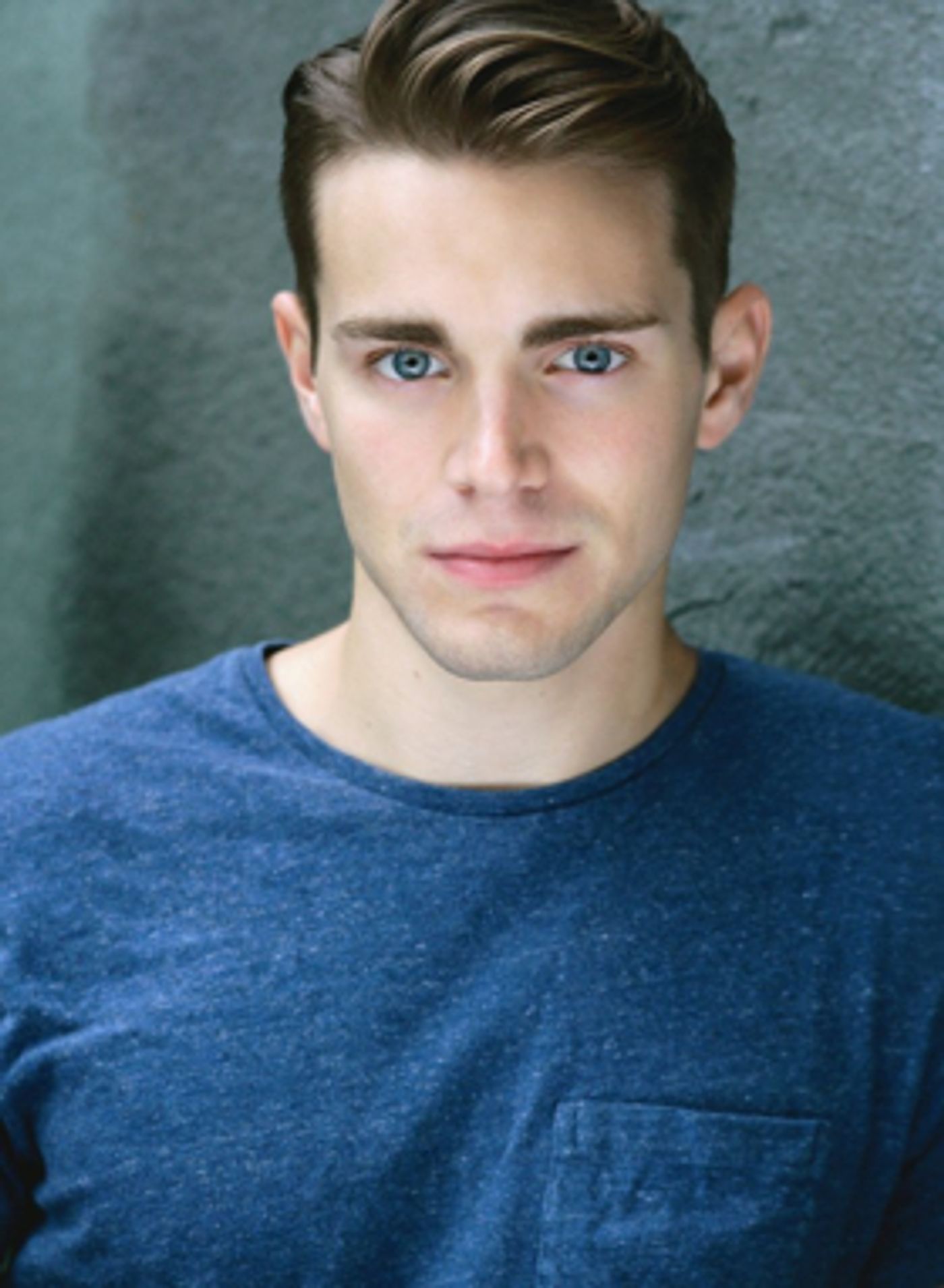
American actor Andrew Burnap is currently starring in Matthew Lopez's acclaimed The Inheritance, which debuted at the Young Vic and is now playing at the Noel Coward Theatre.
The epic, two-part play follows a group of gay men in New York a generation after the peak of the AIDS crisis - including Burnap's charming writer Toby Darling, who's in denial about his past.
Did you see much theatre growing up?
I'm from a small town in Rhode Island called South Kingstown - I went to college there too, so that's where I spent the first 22 years of my life. I was lucky enough to grow up watching plays at the Gamm Theatre, which hosted the Trinity Rep Company.
It was a very close-knit theatre community - a couple of my teachers from university directed shows there too - and I saw everything from Shakespeare, Chekhov and Beckett to new plays.
Was it a bit of a culture shock going from that close-knit community to Yale Drama School?
Definitely! I went straight from undergrad to grad school, so suddenly everybody was extremely talented, highly opinionated, and very intelligent emotionally and intellectually. I no longer felt remarkable - I was just another artist compared to all these incredible people around me.
At Yale, acting became this fascinating study of humanity. It was beautiful, profound, terrible, cruel, insane, loving...so full of everything, you felt like you were going to combust! It did prepare me for a competitive world that can be quite ruthless; most of the time, you're told "No". But it's the few jobs you do get, and those that are meaningful, that make it worthwhile.
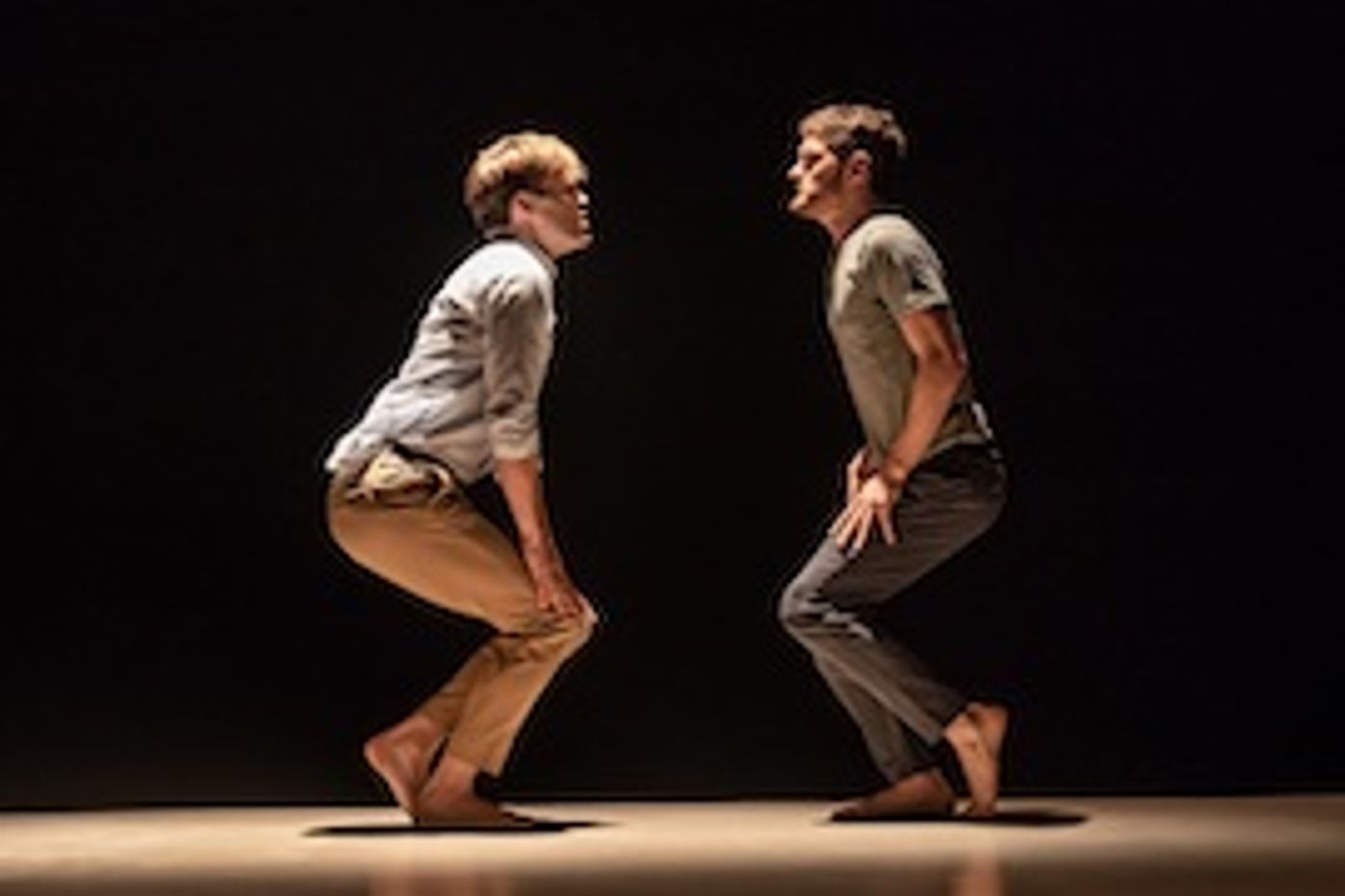
in The Inheritance
Did The Inheritance feel special immediately?
I honestly don't know how many of these experiences come along in a lifetime. I hope, from the bottom of my heart, that many more come my way, I can't imagine many will be this special and have this impact. To walk out on stage and see, in those watching, a recognition of the pain, beauty and sacrifice in the story that Matthew Lopez has given us is almost overwhelming.
I'm always very moved by another person's ability to share, and almost every audience member has been fully willing to go on this journey with us. It's hard to articulate the experience; it's beyond words. It's exactly what we're after in this art form. I'm profoundly grateful to be a part of it.
And you first worked with Matthew on The Legend of Georgia McBride?
Yes, a 95-minute ball of fun - the opposite end of the spectrum! Matthew and I have had almost a two-year working relationship now, and a beautiful friendship has blossomed out of that; we've created this wonderful shorthand. I'll always be in debt to Matthew for the opportunities he's given me.
How did The Inheritance come your way?
I'd done Georgia McBride in LA, and I got an email from my manager saying Matthew was doing a three-day workshop of his new play in New York and wanted me to read one of the young men. I said of course, awesome.
I read the play and - I think Matthew will forgive me - it was the most beautiful mess. The main fault was there was just too much of it, too much greatness! It would have clocked in at about 10 hours. But I was riveted the entire time, weeping and laughing to myself in my apartment at 1am. I told my agent I'd pay to be a stage prop in any future production.
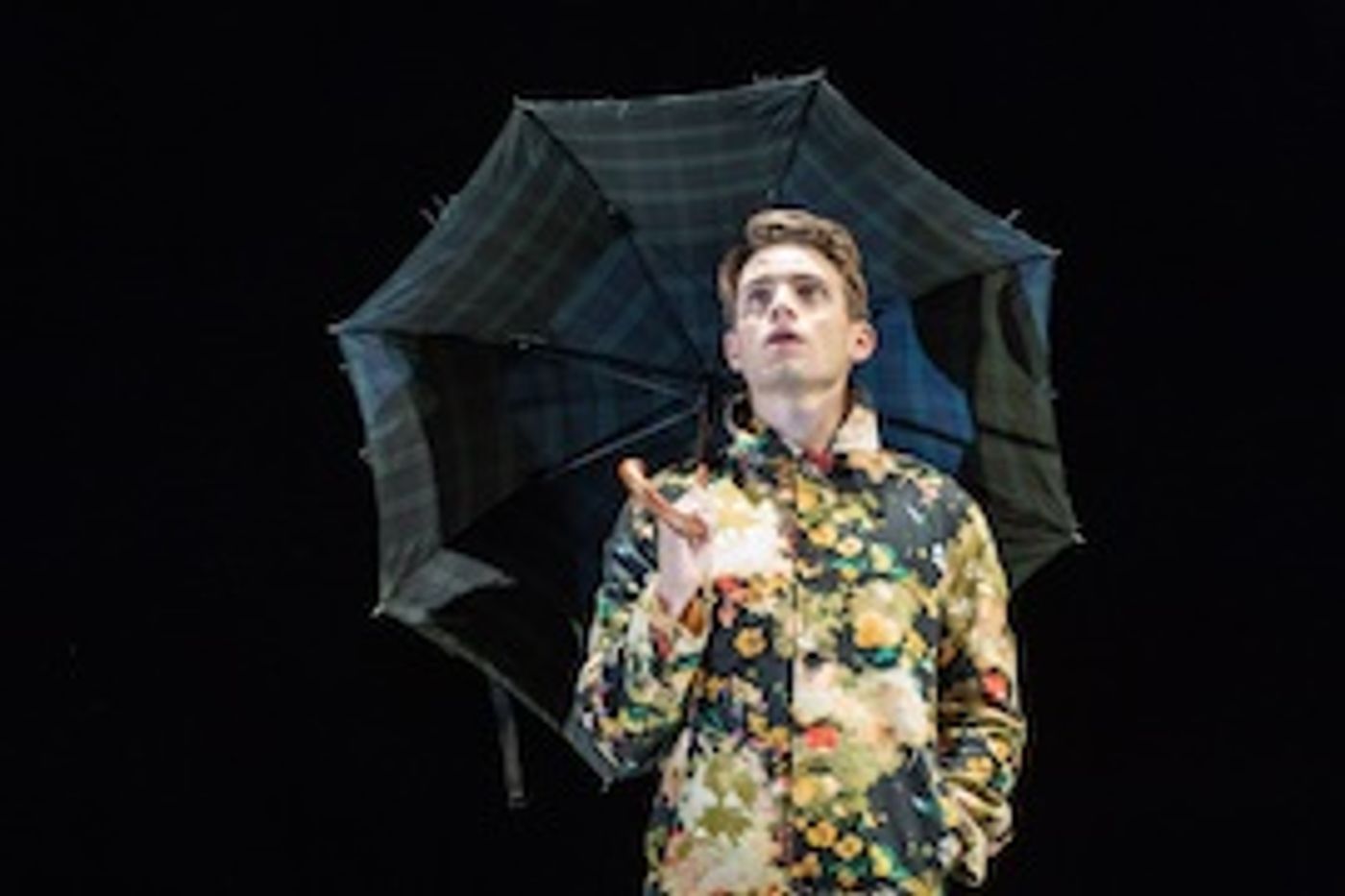
So we did the workshop, and I met the insane genius Stephen Daldry, and David Lam I thought didn't like me, because he was so quiet. Then, a month later, there was a week-long workshop, and Matthew called me saying, basically, I can't get anybody I want to play Toby, so will you read the role!
I'd seen the incredible Cory Michael Smith do it in the workshop, so I was pretty intimidated. But Matthew said ultimately, you'll never play the part in the production - I just want to see what you'd do with it. Which was amazing: it gave me permission to do whatever I wanted, because I assumed I wouldn't get the part (and that also taught me how to audition for the rest of my life). Then I fell head over heels in love with Toby Darling.
Again, I forgot about it, months went by, and I signed on to do another project. The day before Thanksgiving, my manager told me I had the offer for Toby. I pulled over in my car and just wept - I felt my life would be forever changed, and I was right.
What do you love so much about Toby?
Toby is fabulousness, his appetite is impossibly fantastic, and he's one of those commanding types who has the attention of everyone in the room - a phenomenal personality. I know those people who are the life of the party, who I'm desperate to be around, because they're capable of so much love, excitement, joy, energy.
But some also have this pain they're trying to deal with, like Toby. Substituting flair for introspective honesty is something that I can absolutely relate to. We never quite know what's underneath - below all that charm and charisma can be deep wounds that haven't been attended to. The amount of pain that Toby's dealt with in his very young life, it's hard to judge someone for their inability to look at pain like that unless you've experienced it.
As an actor, it's a dream to dig into - someone who's smart, beautiful and fantastic, but also has all of that going on below the surface.
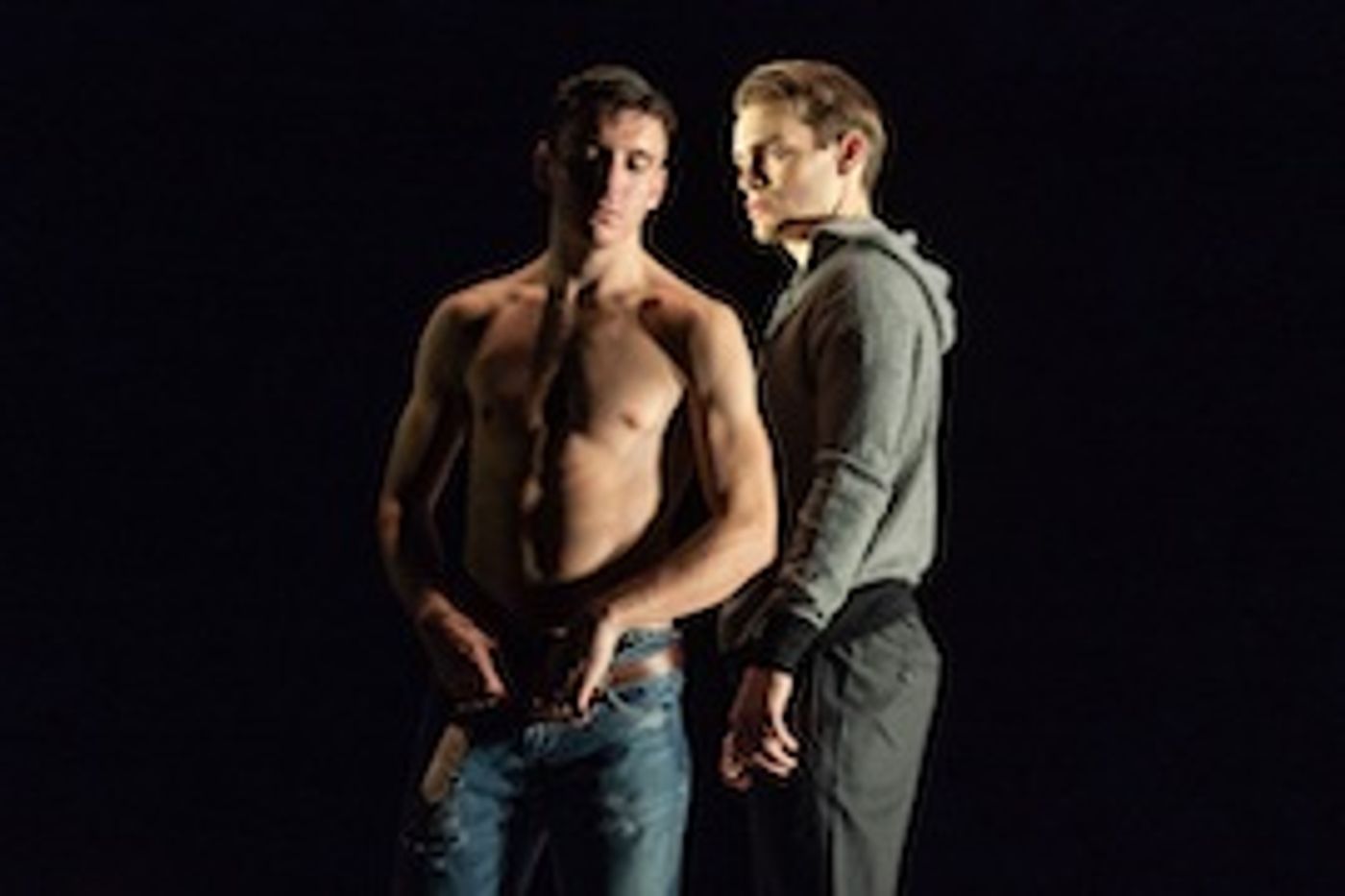
in The Inheritance
How do you gauge when to let the audience glimpse that other side?
It's such a delicate thing when you have a character who reveals their truth - you have an obligation to be honest, but also to do what's theatrically interesting. It's a tough task to balance some of the less forgivable things Toby does with the fact that you have to understand where it comes from.
He's not a villain, he can't be played as one, or you don't really care. His choices come from a very specific history of existence; he's not in a vacuum, or deciding on a whim. So I try to make Toby as complicated and layered and beautiful and ugly as possible. That truth, in all its complexity, is at the root of this brilliant play.
What was it like establishing this combined British and American company?
In rehearsals, you're so involved in the play, it's hard to come out of that and realise where you are. Every so often it hits me, looking around, that I'm the luckiest person to be surrounded by all these amazing artists. Everyone's humorous, we give each other a hard time, and no one's precious.
Because it's an American play with very American personalities, it was probably easier for the Americans to jump into it and get the New York mindset. The day to day of living there is just different stresses, anxieties, interests, joys than in London. When the Brits were learning their accents and those more aggressive New York personalities, I felt like it was sweet revenge for all the George Bernard Shaw plays I did in grad school!
But everyone has the same heart, the same drive, and the same empathy. I have incredible respect for the Brits, and the Americans, who brought every single character to life.
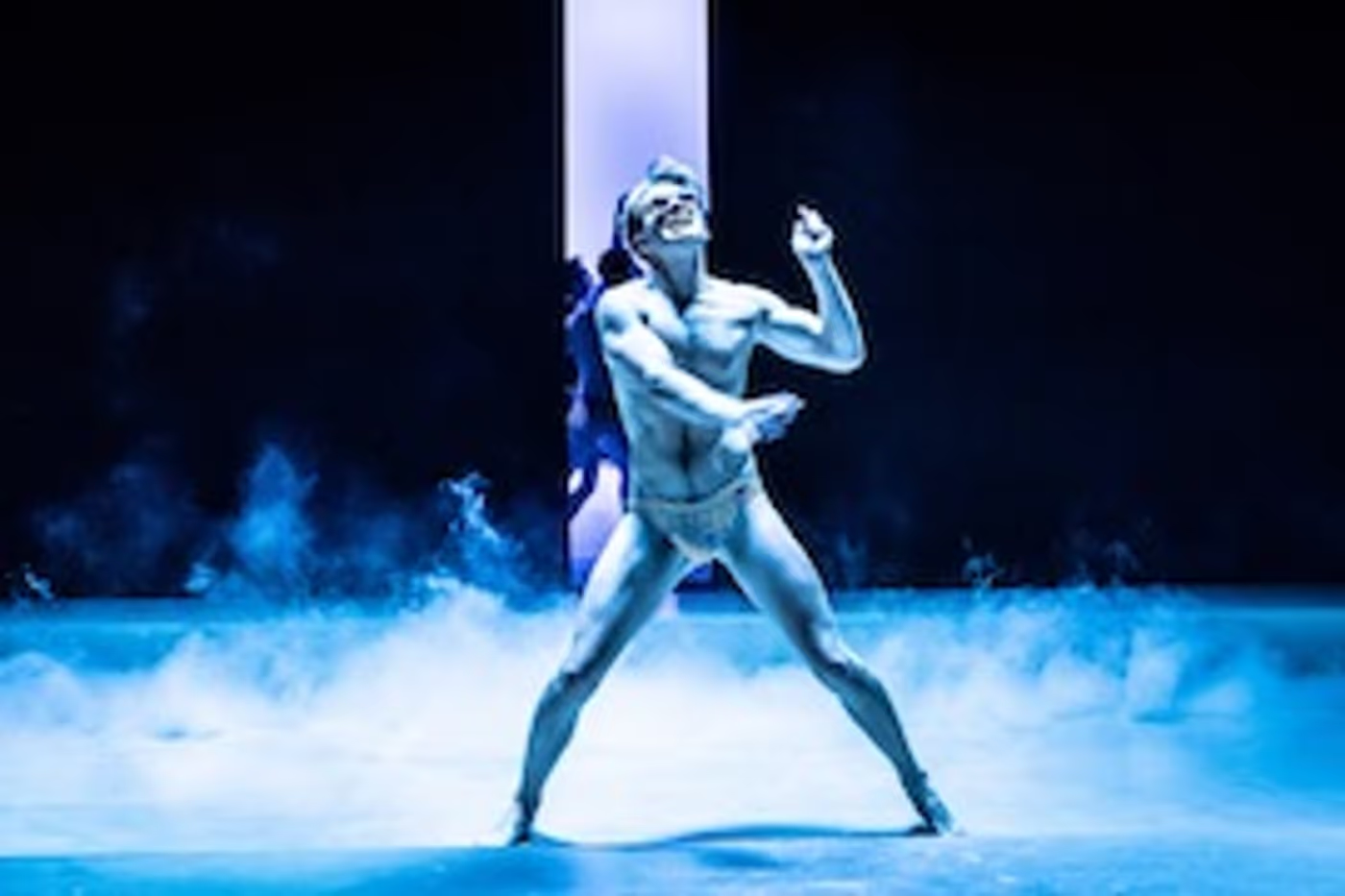
How do you survive doing an intense two-part play like this?
You can't quite describe to anyone what this play requires of you - my life outside of it is just dedicated to recharging! That's fine with me.
It does take a toll on friendships, but it's a piece that requires all of you. Otherwise you fail people who've paid money to come and experience it. So I get a lot of rest, go to the gym, try to stay healthy.
But I love London so much. I feel like people here leave space for each other in a way that's not necessarily true of New York. Just physically, Manhattan is so compact that everyone's on top of each other and you feel squeezed. London has been a wonderful place to develop the play.
What do you think of the Angels in America comparisons?
It's extremely flattering of course, though it's interesting, because Angels is very much about who has power and who does not. This play is more about what do you owe those who came before you, who - through their own need to survive - grappled with their lack of power, and either gained it or didn't.
Our generation in the play has found more of a place of privilege in the world - certainly more than Tony Kushner's characters, who are dealing first-hand with the AIDS epidemic.
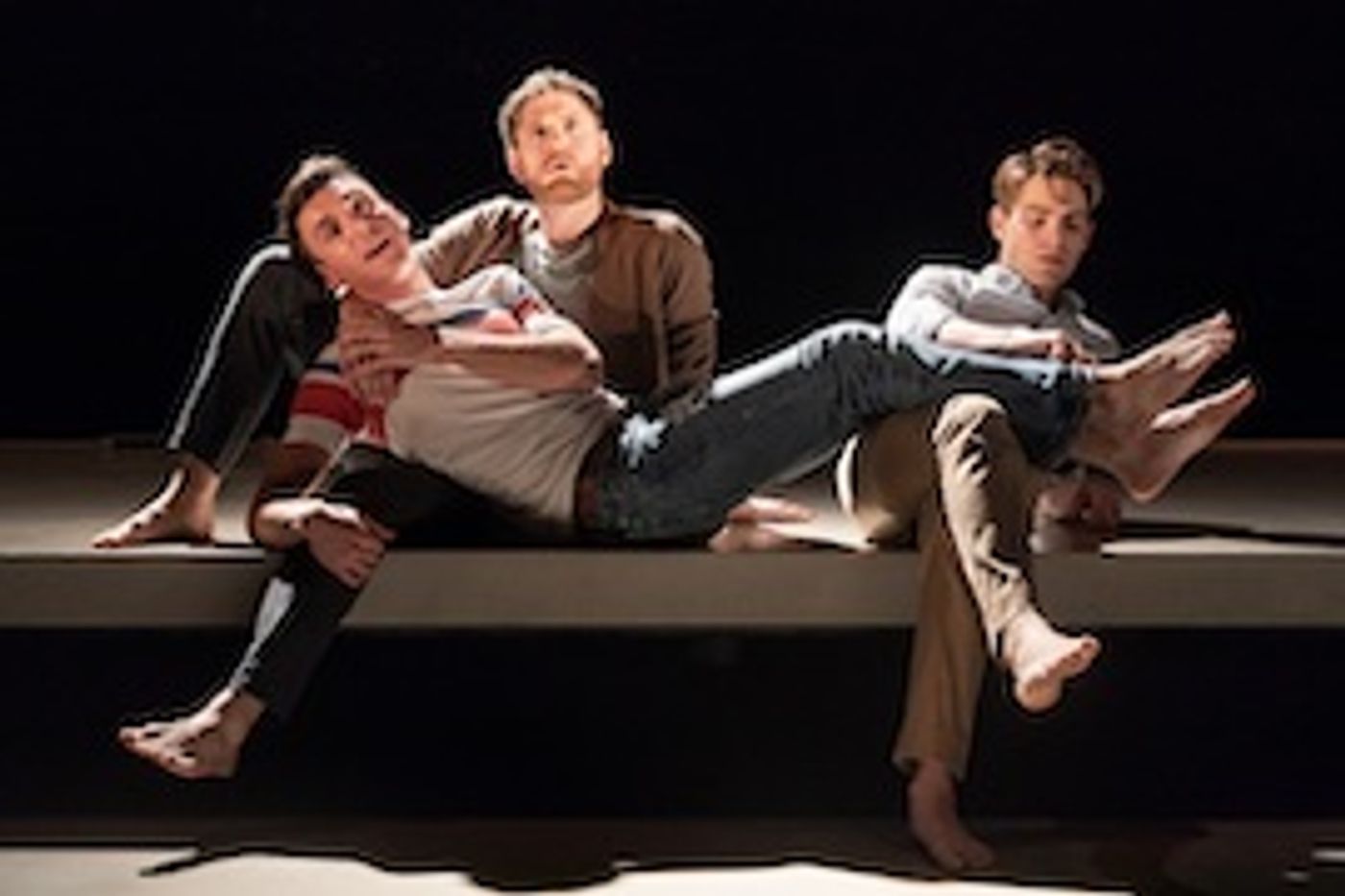
Andrew Burnap in The Inheritance
Did you know much of that history beforehand?
I thought I knew a fair amount about that period in time; heartbreakingly, I found I knew practically nothing. I didn't learn about Stonewall in high school, or the very first cases of AIDS. They weren't in the history books. It was very much shunted off to the side to allow room for mainstream cultural history.
So when I started researching the time, I was very angry that I didn't know these things - very sad, very mad at myself, and at the structures in my life that didn't provide me or my friends with this information. We're certainly in a different place today, but there's a long way to go.
Does it feel meaningful to tell some of that history through this play?
There's a line in the play about how cultural history is learned through stories. When you see facts on the page - 'This many people died in this year' - it's hard to viscerally connect to that.
But when you go back and see human beings talk about these things, that's when you can start to grapple with history. It's not a number, it's a mother losing her son, a brother losing his brother, a man losing his partner. Then you start to understand: it's that person's pain magnified by thousands.
I think that's why this story has hit so many people. Emotionally, you can feel the weight of the time. And then also feel what young gay men go through now, again on that very human level.
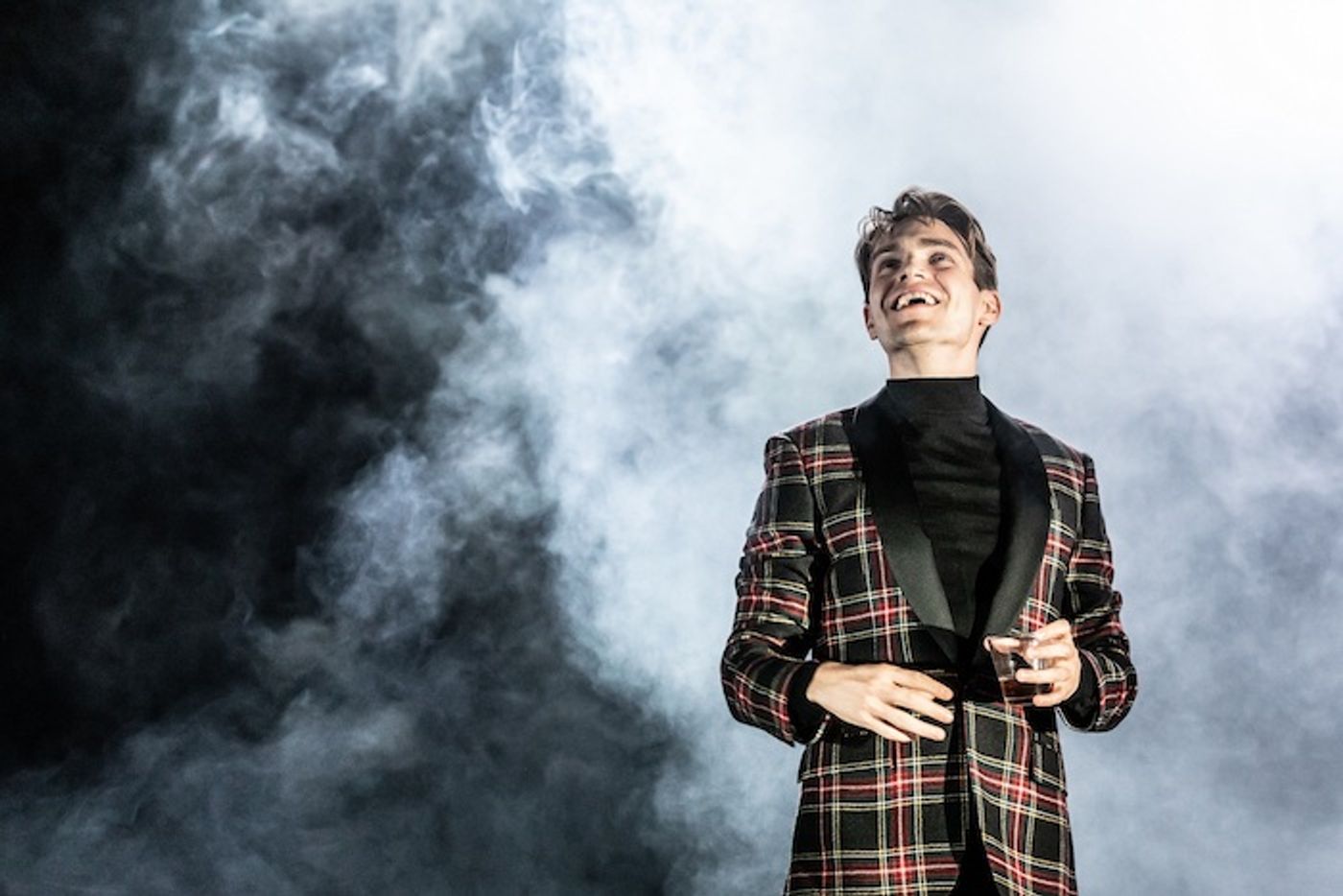
How has the response changed in the West End?
It's actually been quite similar in terms of people being very involved and moved by it. The Young Vic was this beautiful intimate space, so the audiences felt like co-conspirators with us. Every night, we're learning how to do that more effectively in the West End.
And will we see a New York run?
We're not sure yet. Certainly I hope this play can reach as many people as possible, and if that means New York, that would be incredible.
This is a strange time in the world, and stories like this that encourage us to reach out and love one another, despite our differences, feel like exactly what we need right now.
How would you describe the experience of seeing the play to those who haven't come yet?
Many people have said it's like binge-watching a Netflix series, but actually there's nothing like a live experience. Spending seven hours with these characters - and Matthew's words, Stephen's direction, our incredible designers' work - that's special. When you come see this play, I hope your life will be changed. Theatre is one of the few things that can do that.
And finally, do you have any particular ambitions in terms of future work?
I really just want to keep telling stories for the rest of my life, stories that move people or make people think or reaffirm people's love of life. Whether that's film, TV or theatre - though theatre will always be my first love. I would be honoured to keep doing work like The Inheritance that changes the world in small ways.
The Inheritance at Noel Coward Theatre until 19 January, 2019
Watch a trailer below!
Photo credit: Marc Brenner
Powered by
|
Videos

